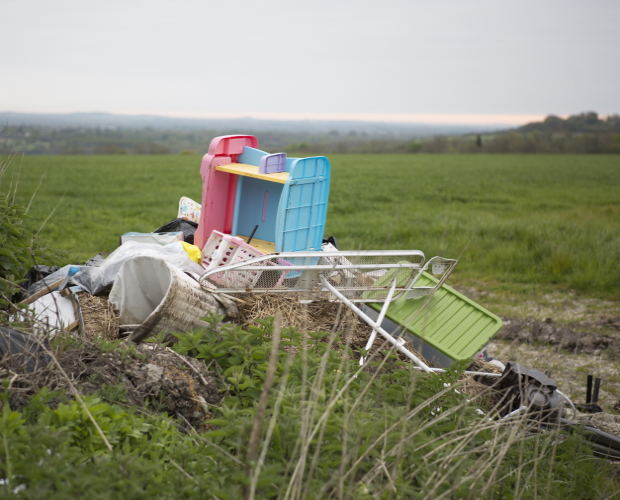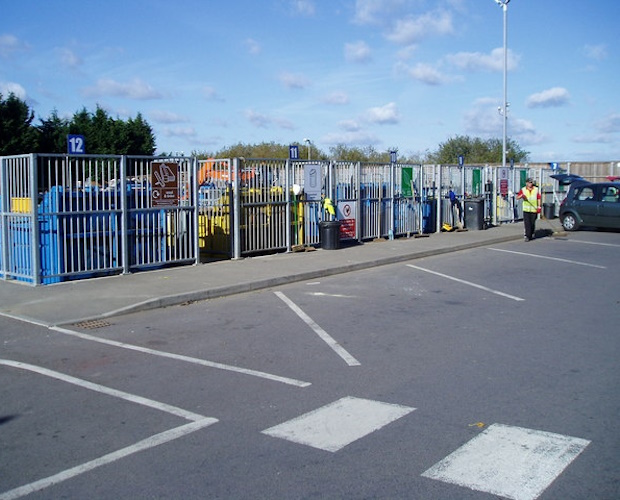T: 01822 851370 E: [email protected]
Visit RSN Survey about life in rural England to find out more.
The Government has announced new powers for councils aimed at tackling the persistent problem of fly-tipping across England’s streets, lanes and rural areas. Under the latest measures, local authorities will be able to seize and destroy vehicles involved in waste...
Figures published by the Department for Environment, Food and Rural Affairs show that RSN members North Somerset Council are amongst the top 20 local authorities issuing fixed penalty notices (FPN) for fly-tipping. In 2021/22, they dealt with 1,212 incidents of...
To launch National Rural Crime Action Week 2023, The Countryside Alliance has released the findings of its latest Rural Crime Survey: 97% of respondents said that rural crime was a “significant” issue in their community; 49% did not think...
There are fresh concerns that a new ban on charges to dispose of DIY waste in England will push up costs for rural households. Following a consultation, the Government announced that Local Authorities will have to scrap the charges for...
Over the weekend, the Government announced that charges to dispose of DIY waste at household waste recycling centres would be scrapped. Around a third of Local Authorities still charge for the service, which includes costs of up to £10 for...
Grants totalling £775,000 will help councils roll out a range of projects to crack down on fly-tipping, Environment Minister Rebecca Pow announced on Saturday 8 April Twenty-one local authorities will benefit from the grants, with schemes such as roadside CCTV...
I News reports that an overwhelming majority of rural communities see crime as a significant problem in their area and half believe police are not taking crime seriously, according to a new survey According to a Countryside Alliance survey, shared...
Last week saw the release of new fly tipping offence statistics from DEFRA, an issue that many people are raising as a priority in their area The National Rural Crime Network (NRCN) Chair, Tim Passmore and NRCN partners have been...
Countryfile reports that fly-tipping and illegal dumping in the countryside is costing £1 billion every year, as a recent report by MPs accuses DEFRA and the Environment Agency (EA) of making slow and piecemeal progress in tackling the “antisocial, polluting...
The Telegraph reports that crime in rural areas has risen nearly three times faster than the rest of the country in the last decade according to new figures from the National Farmers Union The research, analysed by the Labour Party,...
NEWSLETTER
Sign up to receive all our latest news and updates.
HOT TOPICS
Amid reduced public spending, fair resource allocation across regions is crucial. Despite a population larger than Greater London, rural areas receive significantly less funding for essential services, even though delivering these services in rural areas is more expensive.
Economic growth is widely acknowledged as essential for national wealth and prosperity and is a priority for political parties. Rural economies, employing millions and home to a higher proportion of small businesses, have potential for growth if barriers are removed.
Rural residents face distinct healthcare challenges, including limited access to transport, longer distances to medical facilities, an aging demographic, housing inadequacies, digital connectivity gaps, and difficulties recruiting health and care workers.
Rural communities are grappling with a severe affordable housing crisis, marked by high house prices, a lack of affordable housing, elevated living costs, and lower incomes, threatening their sustainability and vitality.
Transport is vital for the quality of life and economic health of rural areas, yet it faces challenges such as infrequent public bus services and less Government funding compared to urban regions.
Rural areas, encompassing a substantial portion of England's population and land, play a pivotal role in combating climate change and achieving the net zero target.
In an increasingly digital world, the lack of robust digital infrastructure in rural areas severely limits access to crucial services and stifles economic growth.
A future-focused vision for rural communities involves not just building the right homes in the right places but also ensuring thriving, sustainable communities.
SIGN UP TO OUR NEWSLETTER
Sign up to our newsletter to receive all the latest news and updates.







